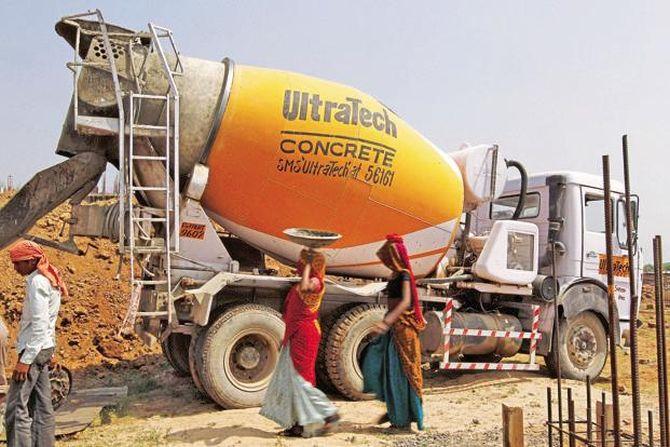 | « Back to article | Print this article |
UltraTech currently has 19% market share with Shree Cement commanding 22% of the market

The acquisition of Binani Cement, if approved, will make UltraTech Cement the leader in the north Indian market, overtaking Shree Cement.
According to sector analysts, Shree Cement’s market share in the country’s northern zone is around 22 per cent while UltraTech’s share is 19 per cent.
If there is a takeover, UltraTech’s share will be around 26 per cent. In turn, it will provide the Aditya Birla Group company more elbow room on pricing.
“It makes sense for UltraTech to pursue with aggressiveness the acquisition of Binani Cement because a successful takeover will make it the market leader and help in further consolidation,” said R R Ravi, sector analyst with Centrum Broking.
However, in Rajasthan, Shree Cement will continue to lead the market with a capacity of 18 million tonnes per annum (mtpa) while a successful takeover will boost UltraTech’s capacity to just over 14 mtpa.
UltraTech’s capacity in the northern region is 17.6 mtpa.
According to an analyst with Motilal Oswal, the takeover will help UltraTech to double Binani Cement’s current capacity of 6.25 mtpa.
This company, which is undergoing insolvency proceedings in the Kolkata Bench of the National Company Law Tribunal, has “considerable limestone reserves”, which can help the acquirer scale up operations.
“Given the huge limestone reserves of Binani Cement, which will be transferred to the successful acquirer, there is a good chance of doubling the capacity,” the analyst said.
The limestone reserves can feed UltraTech’s plants in Rajasthan.
The company has limestone reserves that can feed its existing capacity for more than 35 years.
Sector analysts estimate that the acquisition cost of Binani’s assets, leaving aside its China and UAE plants, will work out to $110-130 a tonne.
However, in case UltraTech is able to acquire Binani Cement, its margins on return on the capital employed are likely to hover around 6 per cent for the Binani plants as against its predominant margins of 10-11 per cent.
On the contrary, Shree Cement, backed by greenfield and brownfield projects, is estimated to register a 20 per cent margin.
“However, it will be for a short term and eventually the margins may rise. Even then, it makes sense to acquire Binani Cement,” the analyst said.
UltraTech, however, did not respond to queries.
According to analysts who track the cement sector, the acquisition is strategic both for UltraTech and Dalmia Bharat.
In an earlier instance, while talking to Business Standard, Mahendra Singhi, CEO at Dalmia Bharat, had stated that the acquisition would give it an exposure to the north Indian market and will help the company emerge as a pan-Indian cement manufacturer.
Currently, its consolidated production capacity stands at 27 mtpa, most of which is centred around east and south India.
In contrast, UltraTech’s consolidated capacity currently stands at 92.5 mtpa, which will increase to 105.9 mtpa once it completes the takeover of the 13.4 mtpa cement business of Century Textiles and Industries.
Binani Cement has two kilns and four grinding mills at Binanigram, Pindwara, Sirohi and Sikar in Rajasthan.
Photograph: Amit Dave/Reuters